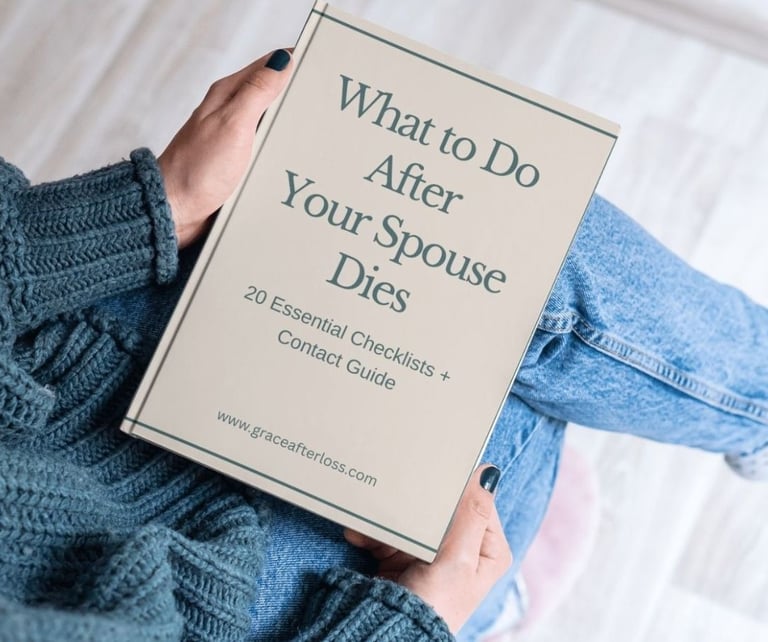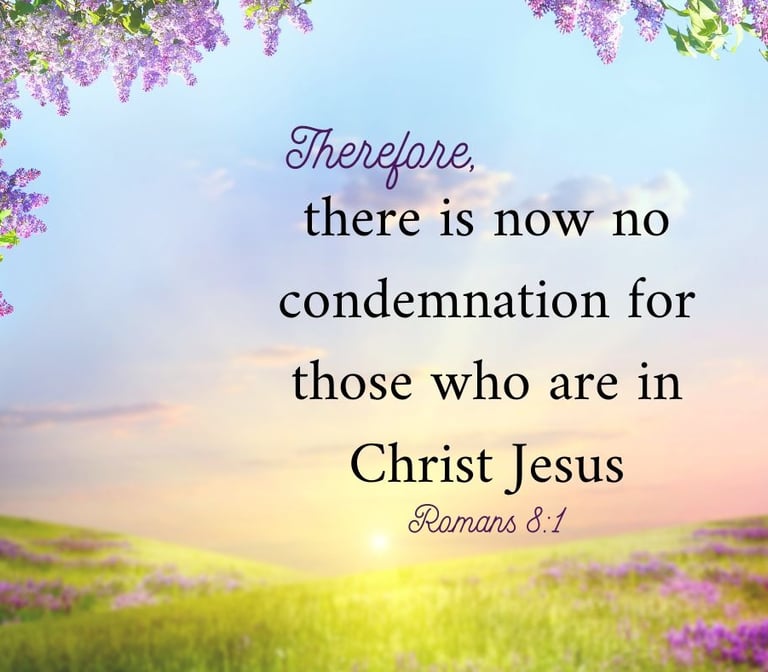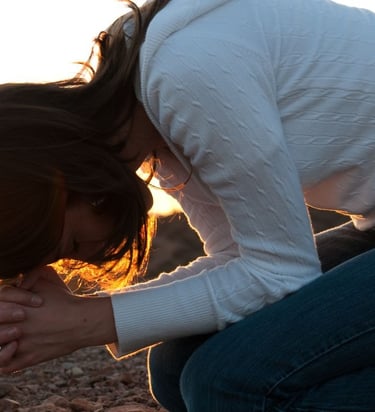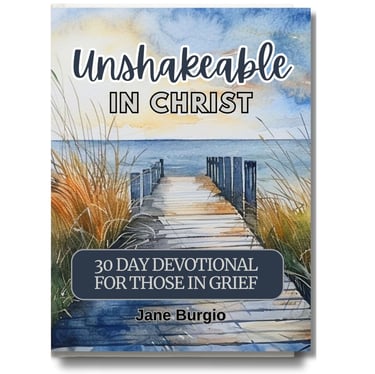When Guilt Walks With Grief
Guilt is a quiet but heavy burden that often follows the loss of a loved one — especially a spouse. In this gentle, reflective post, we explore the painful “what ifs” that grief can bring and offer spiritual encouragement to those who feel weighed down by regret. A reminder that God's grace meets us even in the shadows, and that healing begins with truth and tenderness.
8/4/20254 min read
Finding Hope Together
Real Talk. Real Grace.


Welcome!
As a new widow, I've found that God is a true Father, a faithful Friend, and a deep Comforter. As I've learned to navigate this journey with grace, I've found things that are helpful, practical, and inspiring. That's what I want to pass along to you!
THE LATEST








When Guilt Walks with Grief
SHARED BY JANE BURGIO| LEAVE A COMMENT


This site MAY contain affiliate links, meaning I may earn a small commission—at no extra cost to you—if you make a purchase. I only recommend products I truly believe in. Thanks for your support!
No one warned me that grief could come with so many shadows.
I expected sorrow, numbness, and even anger. But I wasn’t prepared for guilt — that quiet, persistent whisper in the back of my mind.
It started with the “what ifs.”
What if I had said something different?
What if I had insisted on one more doctor’s visit?
What if I hadn’t been so tired, so distracted, so human?
In the days after I lost my husband, I carried not only the ache of missing him but the weight of all I thought I had done wrong — or failed to do right. Grief and guilt after loss can feel like a heavy chain. It's a silent burden that makes us feel unworthy of healing, as if holding on to regret could somehow honor their absence.
FREE GUIDE: What to Do After Your Spouse Dies




But guilt is a cruel companion in grief, especially after losing a spouse or someone deeply loved. It distorts memories and twists love into punishment. And slowly, I began to realize: this guilt was not coming from God.
In Scripture, we are reminded:
"Therefore, there is now no condemnation for those who are in Christ Jesus." (Romans 8:1)
That means even in our deepest grief — especially in our grief — God does not condemn us. He does not point fingers or keep score. He sees our fragile hearts, our sleepless nights, our deep love that wishes it could have done more. And He meets us with compassion.
I’ve learned that guilt often grows from love — from wishing we had more time, more words, more chances. But love is not meant to become a prison. When we surrender it to God, love becomes the very path that leads us toward healing after losing a loved one.
If you're walking through the loss of a spouse or grieving someone close to your heart, and guilt has become your shadow, hear this truth:
You are not alone.
You are not to blame.
And you are still deeply, wholly loved.
There is grace even here.
Grace that lifts shame.
Grace that honors our loved ones — not by clinging to regret — but by living gently, open-hearted, and trusting God’s mercy with all our broken pieces.
Some days, I still hear the whispers of guilt. But now I speak truth back to them:
“God has not forsaken me. He is with me in the valley. And He is gentle with those who mourn.”
May you feel that gentleness today.
And may you walk — not in guilt — but in grace.
Free Download: 10 Scripture Cards for the Brokenhearted
I’ve created a set of 10 beautifully designed Scripture cards you can print and keep on your nightstand, in your Bible, or even on your mirror. Each card is a gentle reminder of God’s presence and promises when grief feels heavy.
Fill out the form here to get your free printable Scripture cards.
Keep them close. Pray them often. Let them speak life into your heart.
Understanding Guilt After the Loss of a Spouse or Loved One










Looking for More Encouragement?
If this post encouraged you, you'll find more in my book, Unshakeable in Christ—a 30-day devotional centered on healing through our identity in Christ. Each day features a powerful "I AM" statement rooted in Scripture. It’s written for women who, while navigating life’s hardest seasons, yet cling to their identity in Christ as their firm, unshakeable foundation.
Share Your Story
Have you found comfort in any daily routines? What’s helping you heal? Share in the comments below—I’d love to hear what habits are helping you in this season, and your experience might give hope to someone else.
© 2025. GRACE AFTER LOSS


FOR THOSE WHO HOPE THERE’S MORE...
Loss may have shifted everything, but you’re still here—which means there’s more ahead. More joy. More purpose. More of His Presence. If you are ready to heal deeply, walk boldly, and live again through the strength only Jesus gives, then Grace After Loss is for you.
With real encouragement, faith-filled resources, and practical steps to help you move forward, you will remember and honor what was while growing into what can be. You were made to live purposefully with grace, even after the storm. Your next chapter can be beautiful. Let’s begin.
